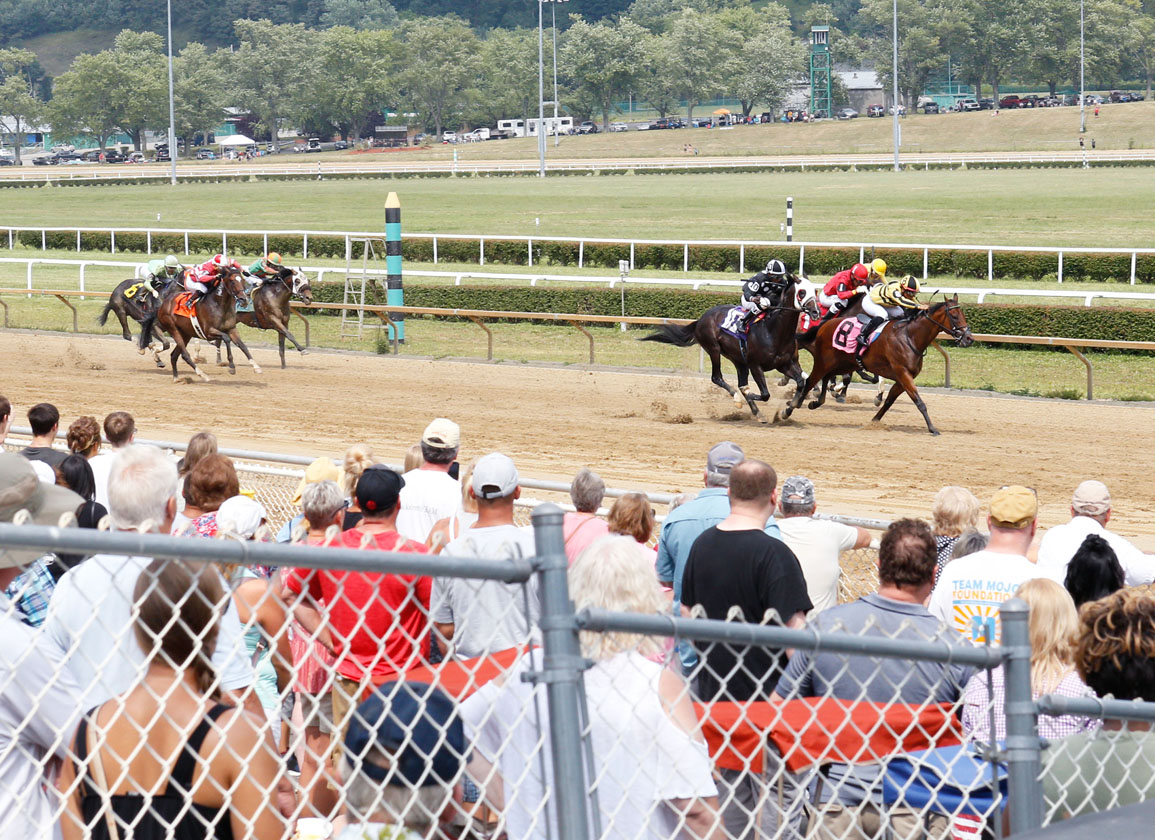By T. D. Thornton
The West Virginia Racing Commission (WVRC) on Tuesday opted to take no action either way on whether to collect and remit fees on behalf of the new Authority created by the federal Horseracing Integrity and Safety Act (HISA).
States are facing a May 1 deadline to declare “in or out” middleman status pertaining to the safety portion of the HISA program that will go into effect July 1. This first phase-in of oversight does not include HISA's drug testing and medication control programs, which aren't expected to be up and running until 2023.
“I'm not going to make a decision to say yes to that today,” said WVRC chairman Ken Lowe Jr., adding that he wants feedback from the state attorney general and/or the governor's office on how to proceed on the matter.
Over the course of the past year, Lowe has repeatedly spoken out against HISA, portraying it as a federal statute crafted by elitists within the racing industry whose interests aren't aligned with the realities of small-circuit racing in West Virginia.
But since the input that Lowe wants from West Virginia's state officials is unlikely to materialize in the next four days, the HISA Authority will likely treat the WVRC's in-limbo response to the May 1 opt-in deadline as a “no.”
According to WVRC executive director Joe Moore, “The one real issue here by not agreeing to it, what [the HISA Authority] will do is now pass [responsibility and costs] to each of our tracks, Charles Town and Mountaineer.”
Last week California and Minnesota became the first two state racing commissions to agree to work with HISA by paying their pro-rated portions of costs. They also have to figure out how to use state employees (like stewards) to enforce federal-level safety rules (like whip-use guidelines).
Racing commissions in New Jersey, Maryland and Texas have already said no to HISA, with several citing as a reason that they don't have the statutory ability to make budgetary and spending changes that involve federal or private entities.
West Virginia is also a plaintiff in an active federal lawsuit joined by several other states aiming to get HISA voided for alleged constitutional violations before the Authority even goes into effect.
That case is currently facing a motion to dismiss; it is separate from the federal lawsuit spearheaded by the National Horsemen's Benevolent and Protective Association (HBPA) that got thrown out of court several weeks ago.
Charles Town HBPA president Jim Miller told commissioners that HISA was “a great overreach” that amounted to an “abomination.”
But Miller was also cognizant that by not signing off on acting as an intermediary, the WVRC will be essentially passing on the Authority's costs to the horsemen on a per-start basis.
“If [the commission or the tracks] don't pay HISA, we lose our right through the Interstate Horse Racing Act to simulcast, which, of course, is a big issue for us as well,” Miller said.
“We're looking at what revenues we trade one way to go the other way,” Miller continued. “This will be a big burden for both the tracks and a huge burden on horsemen. We definitely cannot afford it at a time when, hay, oats, feed, veterinary; all those costs have gone up dramatically in the past couple months.”
Moore also articulated a concern that opting into the safety part of the Authority's program would bind the WVRC to also go along with the medication and doping controls, too.
“We can't even tell anyone how much this is going to cost,” commissioner J.B. Akers added, alluding to the drug and medication control assessments that would follow.
Akers also questioned “the so-called equitable nature of this assessment,” which he said seemed to be calculated too high for a relatively small state like West Virginia.
Added Moore: “This is a mess whether you agree to do their work for them [via] this voluntary agreement or not. Because whether or not our stewards are carrying out their functions, if here's a violation under their code, the recourse of appeal is not to our stewards at Charles Town or Mountaineer Park. It automatically goes to a HISA-appointed Authority.”
With regard to the costs borne by the horsemen and the tracks, Moore said there could be a possible state legislative solution in the pipeline, but that it would be at least two years before it could be implemented.
Tracks and horsemen having to pay directly “could be avoided in future years should we all agree on some additional revenue stream to the racing commission passed through legislation,” Moore explained.
“We could work together on figuring out a revenue stream that gave the racing commission an amount of money to absorb that assessment that would then come back from the racetracks and the horsemen [in a way that] wouldn't be as sudden and impactful as maybe just a direct assessment,” Moore said.
Not a subscriber? Click here to sign up for the daily PDF or alerts.






